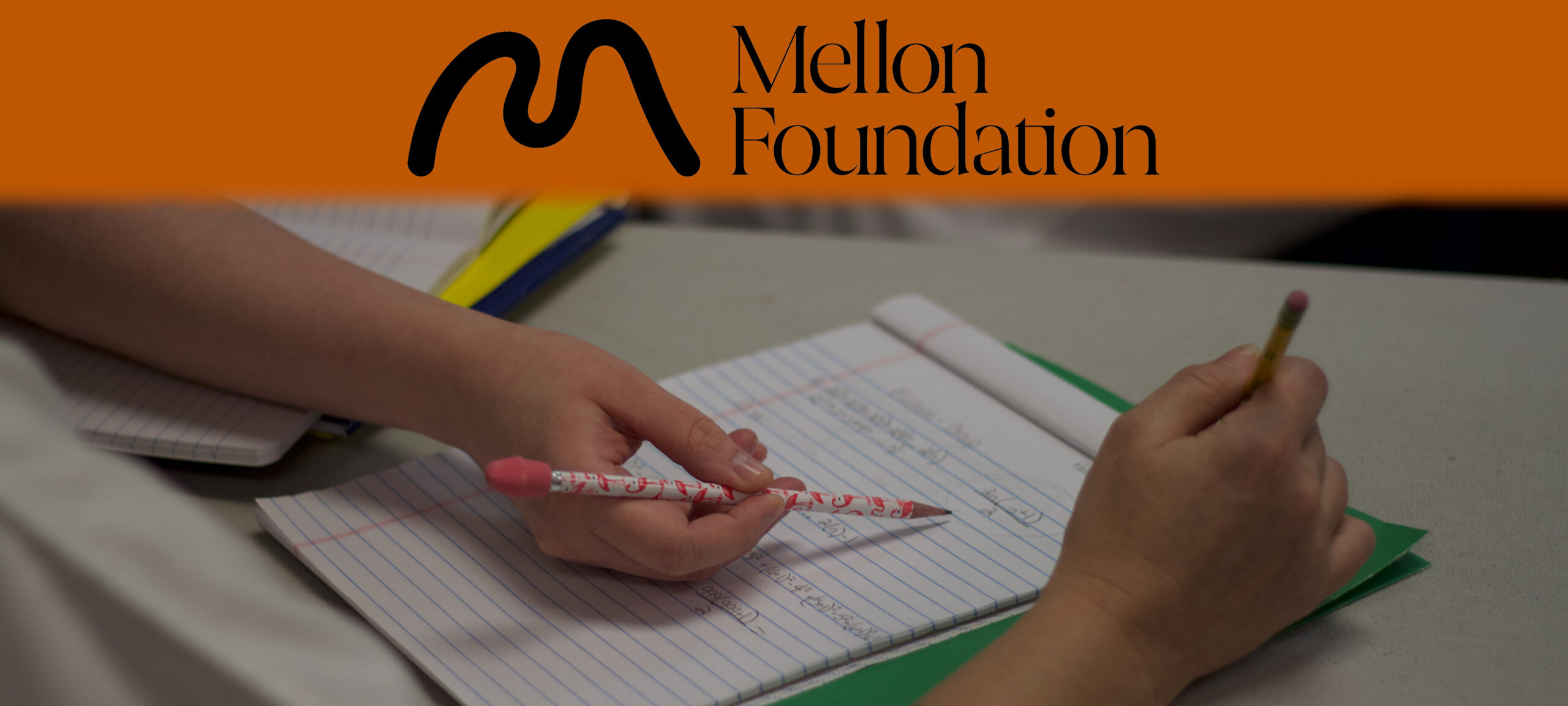
Through a partnership between Teresa Lozano Long Institute of Latin American Studies (LLILAS) and TPEI, The University of Texas at Austin was awarded a $500,000 grant from the Andrew W. Mellon Foundation for Pido la Palabra: A Texas Prison Literature Project for Social Justice and the Literary Imagination. Pido la Palabra establishes a higher-learning Spanish/bilingual creative writing program to incarcerated students.
Over a period of three years, beginning in spring 2023, Dr. Sarah Brayne and Dr. Adela Pineda Franco will implement and oversee two integrated and complementary initiatives: (1) A UT Austin seminar and practicum, “Writing on the Edge: Literature and Incarceration,” will train a new generation of advanced undergraduate and graduate students to learn about prison writing and assist in the implementation of (2) a higher-learning Spanish and bilingual credit-bearing creative writing program, titled “Pido la Palabra,” which will be offered to incarcerated students within the multilingual context of Texas prisons. Pido la Palabra received its award Mellon’s Higher Learning Program. Ultimately, this program can serve as a model for Spanish/bilingual language prison education offerings in the United States.
Prominent Latin American writers with demonstrated success teaching creative writing programs in prisons will serve as guest lecturers in the Writing on the Edge UT Austin seminar and teach one-week workshops with Pido la Palabra to incarcerated students. The project will tackle the specific expressive and communication needs of the Spanish-speaking incarcerated population in Texas while promoting a service-driven education in the humanities at UT Austin.
The title Pido la Palabra evokes the rich connotations inherent in this Spanish idiom. Commonly translated as “I ask for the floor,” pido la palabra entails the request to speak in parliamentary procedure. However, it also alludes to the need for self-expression. Understood as “I ask for the word,” pido la palabra is also a means to reclaim one’s distinctive voice to communicate with others in a unique, affective, and meaningful way. Based on the belief that education can improve the quality of life of incarcerated students; provide grounding for ethical reasoning; and allow for self-expression through language, literature, and the arts, this project will provide access to such an education to bilingual and Spanish-speaking incarcerated individuals within Texas and provide a model for Spanish-language creative writing and literature in prisons throughout the country.
